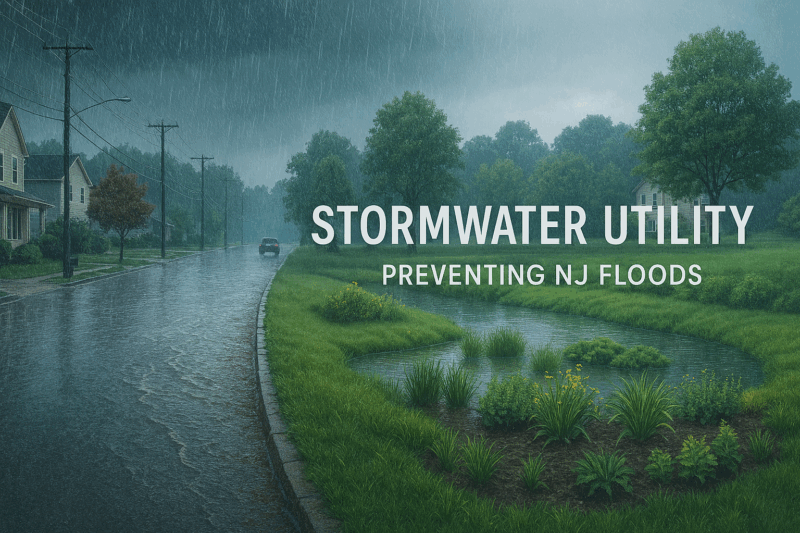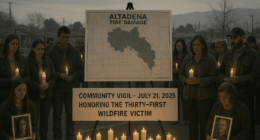In recent years, New Jersey has faced increasingly severe weather events driven by climate change, leading to tragic losses and widespread destruction. One town in Hunterdon County is now pushing forward with an innovative yet controversial plan to fund better flood prevention measures. Raritan Township officials hope this approach will save lives and reduce future risks after a series of deadly storms highlighted the urgent need for improved infrastructure.
The catalyst for this initiative was Tropical Storm Ida, which struck in September 2021 and unleashed up to 11 inches of rain in a short period. This catastrophic event claimed six lives in Hunterdon County due to drowning, contributing to a statewide death toll of 30 people. First responders in Raritan Township alone rescued 86 individuals from rising waters, underscoring the storm’s intensity. Beyond the human cost, Ida inflicted massive economic damage, with estimates ranging from $8 billion to $10 billion across New Jersey. This disaster followed a pattern of major flooding incidents in the region, including Superstorm Sandy in 2012, Hurricane Irene in 2011, and Hurricane Floyd in 1999, along with frequent summer flash floods that have endangered communities.
To address these ongoing threats, the Raritan Township Committee unanimously approved the creation of a stormwater utility in June, becoming the third municipality in the state to do so under the 2019 Clean Stormwater and Flood Reduction Act. The other two are New Brunswick and Maplewood. This utility will generate funds specifically for maintaining and upgrading stormwater systems, such as pipes, detention basins, and culverts, which often fail during heavy rains. It will also cover services like leaf collection and street sweeping to help prevent blockages.
The funding mechanism involves an annual fee charged to property owners, calculated based on the amount of impervious surfaces on their land—things like roofs, driveways, and parking lots that prevent water absorption and contribute to runoff. For the average single-family home, the fee is projected to be between $60 and $240 per year. Larger properties, such as big-box retail stores with expansive parking areas, could face charges in the thousands. Federal properties and agricultural lands are exempt, but places like churches and nonprofits, which are usually free from property taxes, will still need to pay. The first bills, covering the final quarter of 2025, are set to go out in September and will amount to roughly one-third of the full 2026 fee.
Township Mayor Bob King has emphasized the life-saving potential of these investments, noting that the goal is to prevent any more fatalities from flooding in the area. Supporters, including environmental advocates from the New Jersey League of Conservation Voters, argue that this is the most equitable way to tackle the problem. They point out that about 15% of the state’s land is covered in concrete, worsening runoff issues, and that traditional funding sources like municipal budgets and federal grants are drying up amid budget cuts. Property owners can earn credits by implementing eco-friendly changes, such as installing rain gardens to reduce impervious areas.
Not everyone is on board, however. Critics have dubbed the fee a “rain tax,” viewing it as an unnecessary burden on residents. Despite this, proponents maintain that spreading the cost based on contribution to the problem is fairer than relying on general taxes. The utility’s operating budget is expected to reach $1.8 million in 2026, according to consultants, and will help the township meet state environmental regulations on stormwater management.
As climate change intensifies extreme weather, measures like Raritan Township’s stormwater utility could become more common across New Jersey. While the fees may sting for some, the alternative—continued vulnerability to floods that have already taken too many lives and caused billions in damage—seems far costlier. Residents and officials alike are hoping this proactive step will build a more resilient community for the future.






